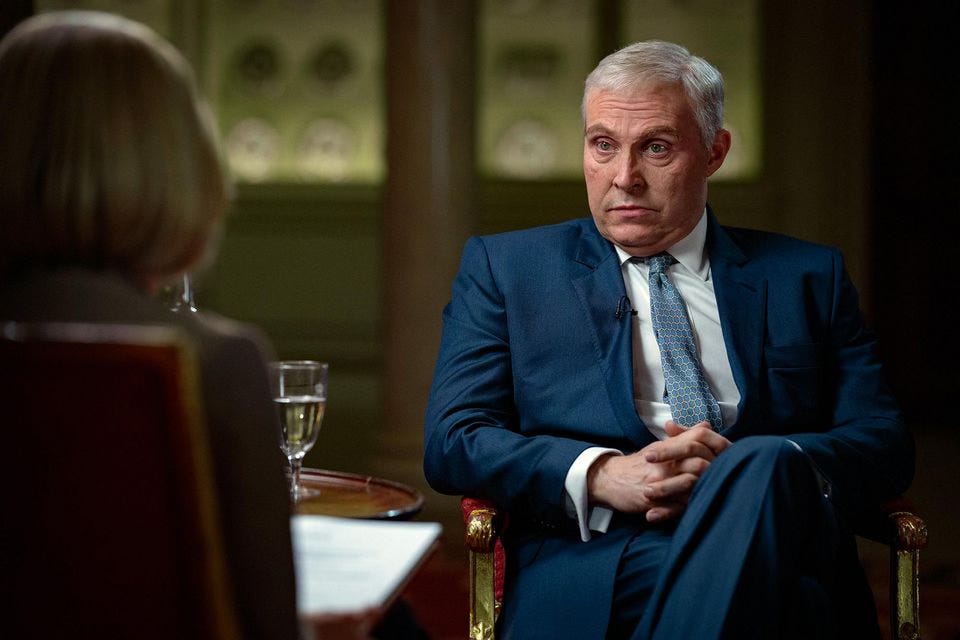But the truth, if anybody cared to acknowledge it, was that the journalists were the sharks. All the peril was on Andrew’s side – if the water was to be red with blood it was always going to be his.
Hack dramas
Anyone who has ever attended the Royal Television Society Awards will know that this is an industry deeply into self-congratulation. The press awards are almost as bad. You would think that the act of doing your job was somehow itself heroic (and just occasionally - as say covering events in a war zone - it is).
This onanistic tendency was perhaps one reason why I took against the Netflix movie Scoop, which tells the relatively unremarkable story of how BBC’s Newsnight obtained an interview with Prince Andrew in 2019 – as opposed to the much more remarkable story of how Prince Andrew came to give an interview at all. The idea that a second drama on the same subject is on the way – this time a series on Amazon Prime – heightened my grumpiness about it, but in fairness I really ought to wait before passing any kind of judgement.
The dramatisation of acts of journalism has a decent recent history. By and large the animating element concerns the difficulties and dangers of covering (or uncovering) genuinely huge stories. The motherlode is All the President’s Menwhich tells how two Washington Post journalists helped bring about the downfall of a corrupted American president. More recently The Post and Spotlight dealt respectively with the publication of the Pentagon Papers and the revealing of the full story of the Catholic church’s active role in protecting paedophile priests in Boston. Perhaps most relevant to Scoop is She Said in which the journalists have to convince women to go on the record – at huge personal risk – to talk about their experiences at the hands of movie mogul, Harvey Weinstein.*
In each of these dramas there is real jeopardy either for the journalists or their sources. If the story can’t be stood up to an exceptional level of proof then it either can’t appear or the newspaper/broadcaster will lose their reputations. And in each case their (often frightened) sources stand in significant danger. The episode of The Crown that deals with the Martin Bashir interview with Princess Diana highlights the danger that the interview might be sabotaged altogether by the BBC chairman Marmaduke Hussey and does this partly by inventing an entirely ludicrous confrontation between Hussey and the BBC Director General John Birt at a meeting of the BBC board. However Diana was the wife of one future king and the mother of another and there were very real problems for the BBC (other than those regarding the way in which the interview was obtained) in being the vehicle for such an explosive programme.




